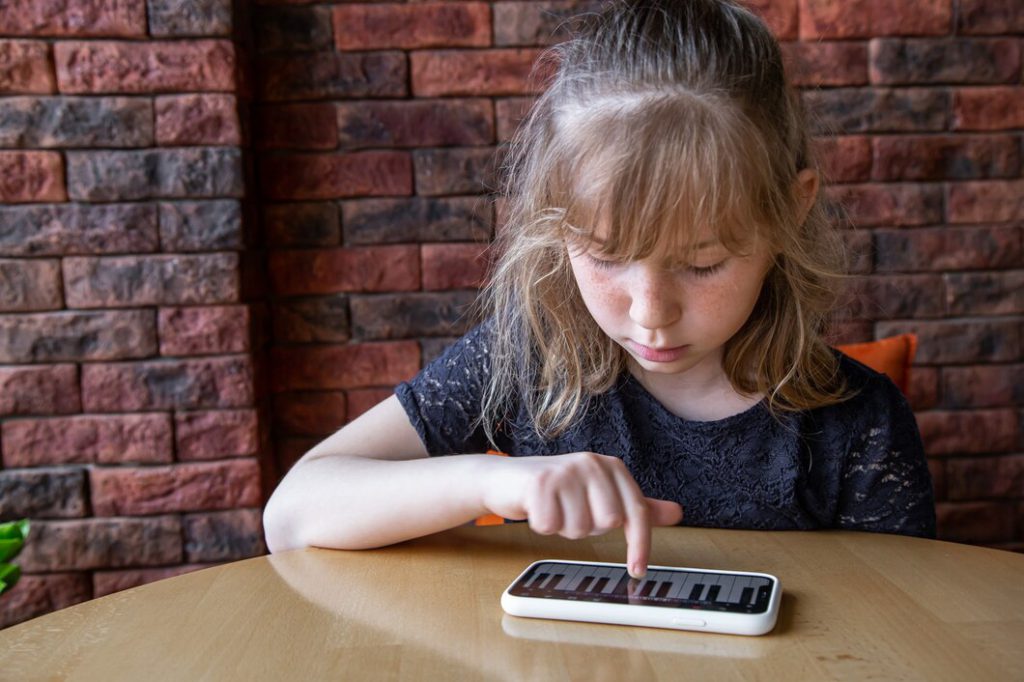
Imagine your child sitting at the dining table, frowning at a simple math problem. You can almost see the self-doubt forming, “Maybe I’m just not good at math.” Now picture the same child a few months later, solving that problem in seconds, eyes gleaming with pride. That’s not just academic progress; that’s emotional growth.
Mental math isn’t about memorizing formulas or doing lightning-fast calculations; it’s about nurturing focus, self-belief, and a calm, confident mind. When children learn to trust their own thinking, they develop resilience that extends far beyond numbers.
In this blog, we’ll explore what mental math really means, why it’s powerful for both learning and mental health, and how you can get your child started on this transformative journey.

In this blog, we will cover
What Is Mental Math?
Why Mental Math Matters for Kids
How to Introduce Mental Math to Your Child
Busting Common Myths About Mental Math
Vedic Math vs. Mental Math: What’s the Difference?
How Mental Math Strengthens More Than Just Numbers
What Is Mental Math?
In the simplest terms, mental math is the ability to perform mathematical calculations without pen, paper, or any digital tools. But it’s more than just rapid arithmetic. It’s a way of training the brain to think logically, focus sharply, and visualize numbers.
Unlike rote memorization, which often fades over time, mental math develops long-term cognitive agility. It enhances how a child thinks, reasons, and approaches problem-solving in math and beyond.
| Explore how the UCMAS Abacus Mental Math Program can transform your child’s confidence, focus, and brainpower by helping them think faster, sharper, and smarter. |
Why Mental Math Matters for Kids
In a world dominated by calculators and smartphones, mental math might seem unnecessary. But research and experience tell a different story. Children trained in mental math show noticeable improvements in:
1. Concentration and Focus
Mental math relies heavily on visualization techniques, where kids imagine an abacus or a mental image to calculate. This process strengthens attention span and focus, valuable life skills far beyond math.
2. Memory and Retention
Regular practice improves both working memory (used in quick calculations) and long-term recall (for concepts and formulas). Over time, this translates into stronger academic performance. Learn how the mental math programs like UCMAS lead to a child’s overall skill and brain development.
3. Confidence and Academic Independence
Nothing beats the confidence boost of solving math problems instantly. Kids start trusting their abilities, not depending on devices, which naturally reflects in their overall academic attitude.
4. Logical Thinking and Problem Solving
Mental math enhances pattern recognition and analytical skills. Kids don’t just memorize; they understand how numbers behave. This logical foundation supports subjects like science, coding, and finance, too.
In fact, these skills go beyond childhood learning; they prepare future innovators and even spark the inner entrepreneur in your child.

How to Introduce Mental Math to Your Child
Every child can learn to think with numbers — but the secret is how they’re introduced to it. Here’s how parents can make that journey exciting from the very start:
1. Start Early, But Keep It Playful
Children grasp numbers faster when learning feels like play. Use toys, fruits, or building blocks to count, add, or subtract. Ask light questions like, “If you have two candies and I give you one more, how many now?”
2. Turn Everyday Moments into Math Games
Daily routines are full of math opportunities — calculating the total apples in a basket, comparing clock times, or adding up items while shopping. These small challenges make math part of life, not just schoolwork.
3. Focus on Thinking, Not Speed
Download our Mental Math Worksheets and have your child solve them. Encourage them to reason through answers instead of rushing to get them right. Ask, “How did you get that?” to help them explain their thinking — this builds problem-solving confidence.
4. Help Them Visualize Numbers
Ask your child to picture numbers or objects in their mind — like seeing “4 + 3” as four apples and three more. Visualization makes abstract numbers feel real and strengthens their working memory.
5. Minimize Calculator and Screen Use
For small sums or patterns, encourage mental effort over devices. The brain becomes sharper when it does the math itself.

Busting Common Myths About Mental Math
Even today, many parents hesitate because of popular misconceptions. Let’s clear a few up:
- Myth 1: “Mental math is only for gifted children.” Not true. Every child can learn it with consistent training and the right environment.
- Myth 2: “It’s all about memorizing formulas.” In reality, mental math is concept-based. Kids visualize numbers through patterns and logic, not memorization.
- Myth 3: “It’s stressful and too competitive.” A good mental math program focuses on fun, brain exercises, and self-paced growth, not pressure.
- Myth 4: “Technology has replaced the need for it.” Tools calculate; the brain understands. Mental math develops cognitive skills no gadget can replicate.
Vedic Math vs. Mental Math: What’s the Difference?
Parents often use Vedic Math and Mental Math interchangeably, but they differ in both origin and approach. Here’s a quick comparison to help you understand:
| Aspect | Vedic Math | Mental Math (UCMAS Method) |
| Origin | Rooted in ancient Indian Vedic sutras (formulas) developed thousands of years ago. | Based on modern cognitive research and abacus-driven brain development techniques. |
| Approach | Uses mathematical shortcuts and pattern recognition to simplify arithmetic operations. | Focuses on visualization and memory—children calculate using a mental image of an abacus. |
| Objective | Designed primarily for faster and more efficient arithmetic solutions. | Aims at holistic brain development by enhancing memory, concentration, and logical thinking. |
| Learning Style | Technique-based — learners memorize sutras and apply them to problems. | Concept-based — learners understand, visualize, and internalize number relationships. |
| Skill Impact | Strengthens mathematical speed, accuracy, and pattern recognition. | Builds focus, creativity, self-confidence, and mental agility. |
| Best For | Older students who already have a grasp of arithmetic fundamentals. | Younger children (ages 4–13) developing foundational math and cognitive skills. |
How Mental Math Strengthens More Than Just Numbers
When kids learn mental math, the benefits go far beyond arithmetic. Each time they visualize numbers or solve problems in their head, they’re training their brain to stay calm under pressure, think clearly, and trust their instincts. This sense of mastery doesn’t just improve grades; it boosts mental resilience.
Children who practice mental math often show better focus, patience, and confidence in everyday decisions. They stop fearing mistakes and start enjoying challenges, an essential mindset for lifelong learning. In a way, mental math quietly becomes a confidence-building and emotional wellness exercise, helping children handle both classroom tests and real-life problems with equal poise.
An Inspirational Success Story of Samiha’s Son
Parents often wonder how much of a difference mental math can really make. The truth lies in the stories of children who’ve experienced it firsthand.
Take Samiha’s son, for example. He started his journey as a shy child who found math intimidating. But with consistent practice and the right approach, he began solving complex problems in seconds — without pen or paper.
Read the full story of Samiha’s son and see how his focus, confidence, and love for learning grew tremendously over time. Today, math isn’t something he fears; it’s something he enjoys exploring.
Ready to Begin Your Child’s Mental Math Journey?
Your child’s confidence in math and in themselves starts with one small step. Whether you’re exploring how mental math can boost focus and self-belief, or simply curious about where to begin, UCMAS makes the journey simple and rewarding.
You can start by discovering the UCMAS Mental Math Program, designed to enhance logic, memory, and concentration through the power of abacus-based learning. If you have any queries, you can explore our FAQ page, where we have addressed some common questions about our class structure or eligibility.
You can also request an info session to connect with our team and discover how UCMAS can help your child grow both academically and mentally.






